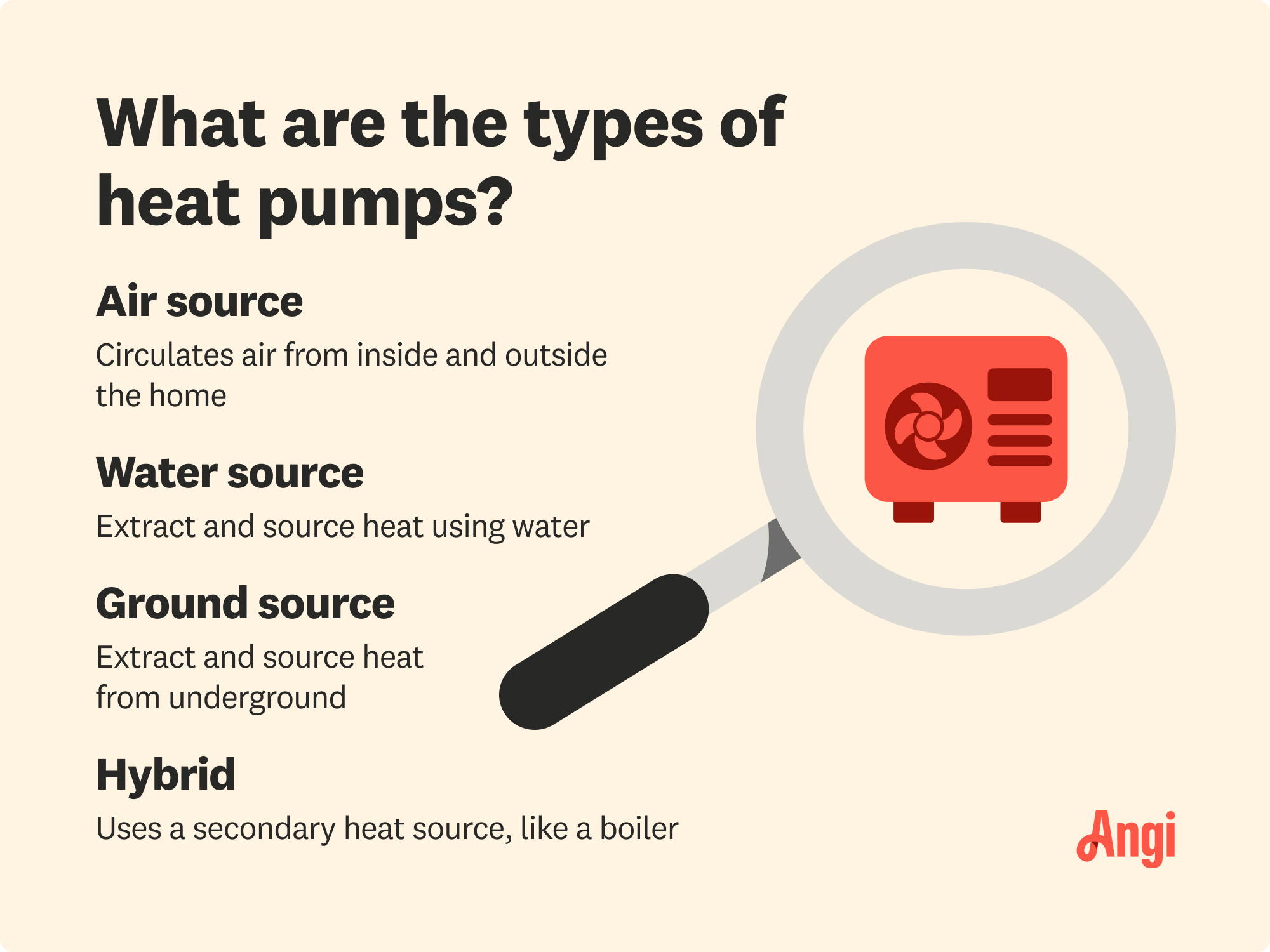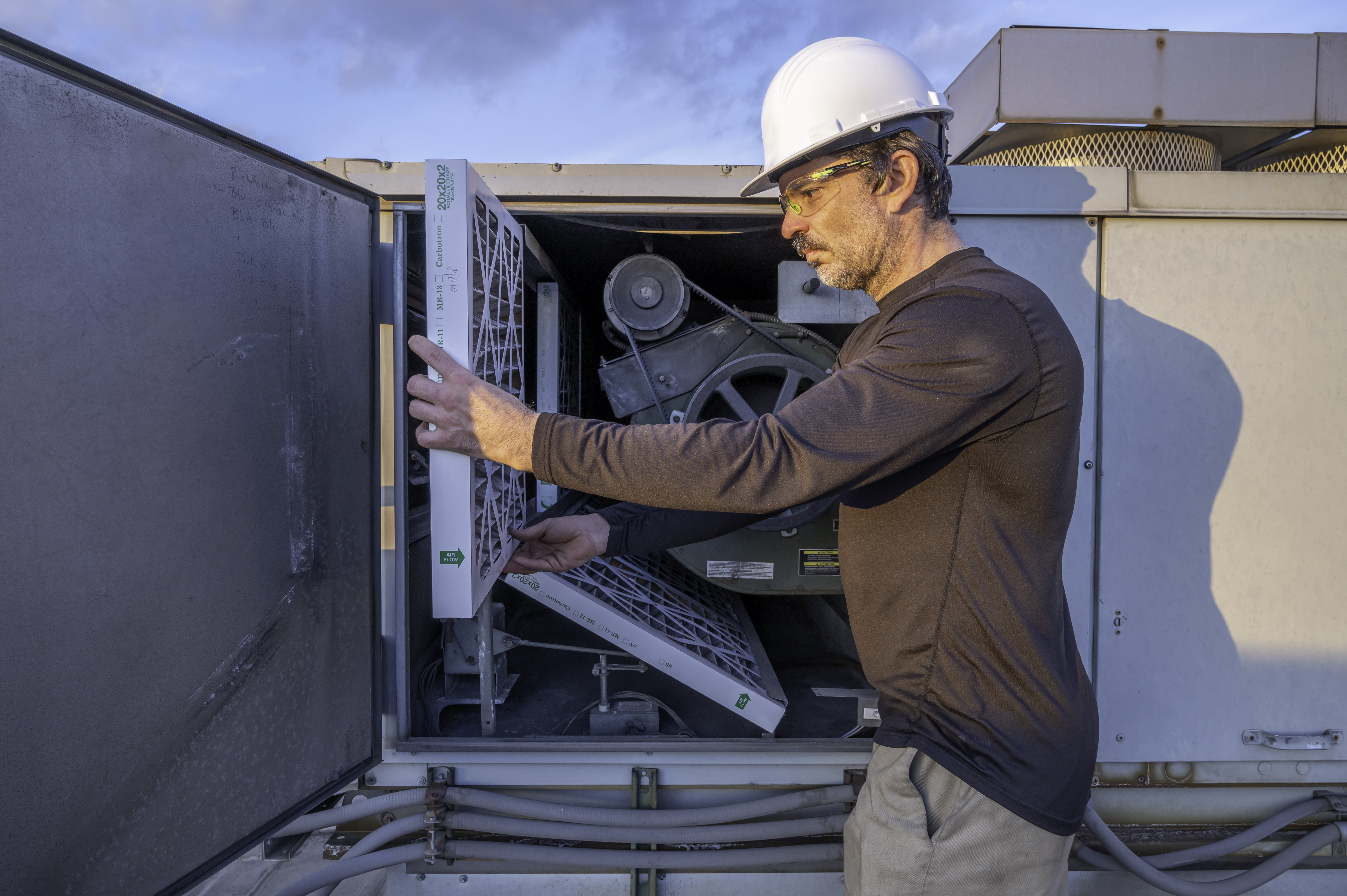
Explore how much an AC compressor costs to install based on cost factors like it’s type, brand, size, and local labor rates.
A heat pump costs $6,085 on average, but this project may range from $4,244 to $7,938 depending on home size, capacity, efficiency, and type.


Heat pumps initially cost around $800 to $1,400 more than a furnace, but you can save up to 50% on your energy bills if you live in a mild or moderate climate.
Heat pump installation costs depend on type, capacity, efficiency, your location, and other factors.
A mini-split heat pump is the most affordable option, ranging from $1,300 to $8,000, while a geothermal type is the priciest, costing $6,000 to $20,000.
Many homeowners need a 3-ton capacity heat pump, which costs between $3,900 and $6,200, including labor.
The average heat pump costs $6,085, but you might pay anywhere between $1,500 and $12,000. Most homeowners end up spending $4,244 to $7,938. The eco-conscious potential of heat pumps can lower energy costs by up to 50%, leaving extra room in your budget for other home projects.
To help homeowners with their next project, Angi provides readers with the most accurate cost data and upholds strict editorial standards. We’ve surveyed thousands of real Angi customers about their project costs to develop the pricing data you see, so you can make the best decisions for you and your home. We pair this data with research from reputable sources, including the U.S. Bureau of Labor Statistics, academic journals, market studies, and interviews with industry experts—all to ensure our prices reflect real-world projects.
The type of heat pump affects the price, with mini-split heat pumps being the least expensive and geothermal heat pumps being the most expensive. About 66% of Angi customers have an air-source heat pump.
Here’s how the type of heat pump will affect your unit cost:
| Heat Pump Type | Average Cost Range | Description |
|---|---|---|
| Mini-Split | $1,300–$8,000 | High-performance air-source heat pump that offers greater efficiency, flexibility, and comfort compared to basic duct-only systems |
| Hybrid | $2,500–$10,000 | Combines a heat pump with a second heating source, like a furnace or boiler |
| Air Source | $4,500–$8,000 | A common heat pump type that transfers heat between the indoor and outdoor air using a refrigerant |
| Geothermal | $6,000–$20,000 | Work with the earth's stable underground temperatures; energy-efficient and cost-effective over time |

Since the type of heat pump that’s best for your home depends on several factors, ranging from budget to energy source, it’s best to consult a local heat pump professional to get their expert opinion.
The size of your heat pump affects your replacement cost, with most homeowners opting for a 3-ton capacity heat pump that costs between $3,900 and $6,200 (including labor). Lower-capacity pumps could decrease the price to $3,500, while higher-capacity pumps could cost $8,800.
Refer to this table for price differences by heat pump capacity:
| Capacity (Tons) | Size of House (Square Feet) | Average Cost Range |
|---|---|---|
| 2 | 1,000 | $3,500–$5,500 |
| 2.5 | 1,500 | $3,700–$5,800 |
| 3 | 2,000 | $3,900–$6,200 |
| 3.5 | 2,500 | $3,900–$6,400 |
| 4 | 3,000 | $4,000–$7,300 |
| 5 | 3,500 | $4,500–$8,800 |
You’ll pay between $1,600 and $9,500 for a heat pump unit with a SEER rating of 14 to 20, not including installation costs. SEER (Seasonal Energy Efficiency Ratio) measures how efficiently a unit uses electricity to cool your home—the higher the SEER, the more efficient (and more expensive) the unit.
Here’s a breakdown of heat pump costs by SEER rating:
| Heat Pump SEER Rating | Average Cost Range |
|---|---|
| 14 | $1,600–$4,900 |
| 15 | $1,800–$5,900 |
| 16 | $2,400–$6,200 |
| 18 | $2,900–$6,700 |
| 20 | $3,600–$9,500 |
The cost of a heat pump depends on its size, type, ductwork, and other factors. Here’s a cost breakdown to help you budget for your project:
Local heat pump installation pros: $75–$125 per hour per worker
Location: $2,000–$5,000 more for a heat pump system designed to handle freezing temperatures efficiently
Permits: $50–$300
Brand: $1,500–$4,000 more for higher-end brands
Ductwork installation: $2,000–$7,500
Heat pump maintenance and repairs: $150–$600 for a local heat pump repair pro; $50–$180 for a yearly tuneup costs
The cost of a heat pump varies on a state level. In most states, installing a heat pump costs less than $7,000, but you can expect to pay more in select states, including Arizona, Washington, New Mexico, and Louisiana, according to Angi data. Find your state below:
DIY heat pump installation is an advanced project that’s best left to a pro. Although labor costs $75 to $125 per hour per worker, installing a heat pump on your own may not result in significant savings. That’s because labor fees usually cover all supplies, local permits, duct setup, and additional materials.
Here’s why you should hire a pro for this project:
Installation is a complex process, and a heat pump's complicated wiring and ventilation setup means that one false move could lead to a costly and frustrating outcome.
Mistakes can lead to safety risks, including fires, refrigerant leaks, and electrical hazards.
Improper installation can also lead to issues such as reduced efficiency or system failure.
A pro can calculate the correct heat pump size for your home, avoiding future issues.
Most manufacturers require professional installation to maintain their warranty.
HVAC pros understand local building codes, permits, and inspections.
With such a high price tag, you may wonder how to save money on your heat pump installation. Here are a few tips on how to save:
Look into the Inflation Reduction Act of 2022 (IRA). Eligible homeowners may receive a tax credit of up to 30% of the cost, capped at $2,000 per year for heat pump installations. Learn about available tax credits and rebates via the U.S. Department of Energy website.
Check your state’s Department of Revenue website to see what local tax rebates may be available. In some cases, you could save between $1,000 and $5,000 or more through a combination of federal, state, and local incentives.
Selecting the correct unit size is crucial for long-term cost savings. A unit that’s too big or small won’t work efficiently and will cost more to run.
If your home doesn’t have existing ductwork, consider a ductless heat pump to save money on new ductwork, which can cost $2,000 to $7,500.
You’ll spend $75 to $125 per hour per worker to hire an HVAC technician, but heat pump installation isn’t a DIY-friendly job.
Improper heat pump installation can lead to lead to safety risks, reduced efficiency, or system failure.
High-efficiency heat pumps are pricier up front but can help you save big on utility bills over time.
Don’t forget to account for permit costs, which can add hundreds to your total.
From average costs to expert advice, get all the answers you need to get your job done.

Explore how much an AC compressor costs to install based on cost factors like it’s type, brand, size, and local labor rates.

Springing for HVAC maintenance costs may seem like an extra—and easy-to-ignore—item on your checklist, but it will save you money in the long run.

Explore factors influencing oil furnace replacement cost, additional expenses, and savings tips. Make an informed decision for a cozy home.

A whole-house humidifier costs between $400 and $800, but can have an ROI of 40%. Learn if adding this HVAC appliance is worth it for you.

When you notice hot and cold zones in your home, it pays to learn how to balance airflow in your ducts to even out the temperature.

Wondering who to hire for swamp cooler installation? Learn when to call an HVAC contractor, electrician, or handyperson, and what to expect.